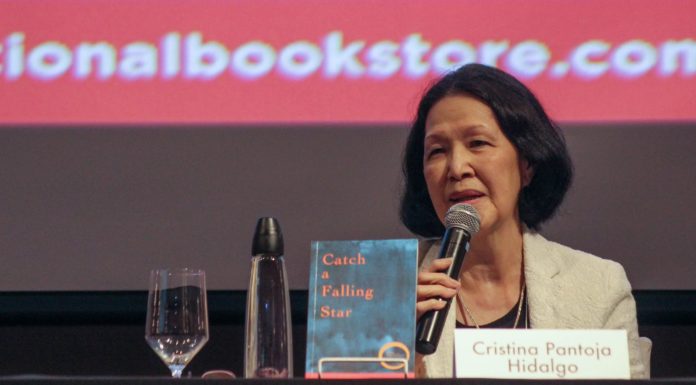SIDE by side with sordid stories of abuse and treatment of Filipino overseas contract workers are stories of bright economic prospects that the ever-increasing dollar remittances of OFWs to the country. But can OFWs improve their lives in the Philippines?
The UST Graduate School and Center for Professional Development and Consultancy Services (CPDCS) seeks to provide the answers by encouraging OFWs to go into business.
Five professors of the Graduate School reached out to Filipinos in Hong Kong last October gave overseas workers encouragement, motivation and basic knowledge on starting a small business through a free seminar-workshop on micro-entrepreneurship.
The seminar conducted by two of the members of the CPDCS, Prof. Conrado Montemayor and Prof. Cristina Castro-Cabral, gave OFWs a new perspective in savings. It aimed to encourage them to invest in small businesses in the Philippines which could not only give them profit, but would also be of great help in alleviating the employment crisis.
“Let us not be contented with being mere employment seekers, rather, employment generators. That is what the country needs,” Cabral told the workers.
The business principle
The principle presented in the seminar was simple: invest, earn, and at the same time, help solve the growing economic problem of the country. Instead of buying luxury items in the country of employment at the value of the currency there, put up a small business in the Philippines. Send the money to one’s family the country and let them handle the business. That way, it would not only keep their family busy and profit from one’s investment, it would also alleviate the employment problem in the country.
Also called micro-enterprise, the method focuses on the chosen segment of the society for poverty reduction and consequently, for economic development. Micro-enterprise has propelled the economic growth of now highly developed countries such as Japan, Korea, Taiwan, Singapore, Indonesia, Hong Kong and Malaysia.
In her lecture, Cabral stressed the importance of creativity in the success of the business.
“They will invest in tricycle, jeep, dahil kopya mo lang sa kapitbahay mo… that is not the way to do business,” she told the participants. “It will be best that you come up with something new.”
The seminar-workshop did not have the usual uptight set-up where the audience would just listen to a speaker who would talk for hours. Instead, it was presented in a way where participants could enjoy while learning the complications of business planning. Cabral said that she even used the Vilma Santos starrer Anak to prove her point. She said the movies made the OFWs.
The seminar was interactive. There were games and group activities where the output was a business plan. This proved effective when one of the participants successfully put up her own restaurant in Bukidnon.
The business success would not have been possible without the continuous assistance that the lecturers offer them through e-mail correspondence. The CPDCS team had promised the budding entrepreneurs free business consultations.
This correspondence also established many friendships. Connections were made between the lecturers and the OFWs so that the most trivial developments such as new additions to the menu are relayed to the lecturers.
“Iyon ang nakakataba ng puso namin, we were able to inspire.” Cabral said.
Future Plans
The project, conceived by UST Graduate School Dean Lilian Sison and project head Conrado Montemayor, was considered a success. As a result, Filipinos in other countries have been requesting for the team to come to their host countries to conducts the seminars. The team will conduct a follow-up seminar for 300 OFWs this April at Caritas Hall in the center of Hong Kong. It also held a seminar for OFWs in Macao.
Because of the growing demand for the seminar, the CPDCS now plans to expand its work.
Asked on what her driving force is, that despite her hectic schedule, she still finds time to answer the e-mails, Prof. Cabral’s answer was simple: she believes in what she does. And this must be the same reason why these group of people offer their time and services for free.
CPDCS does not only give better opportunities for OFWs but it also gives them a dream which could come true; not only of having a stable business, and helping solve the economic problems of the country, but most importantly, the scenario of coming home becomes clearer. This time, they could be together once more as a family for good, of course, with a successful business that would sustain them.With reports from Joanne G. Fajardo
















